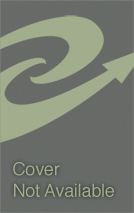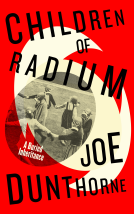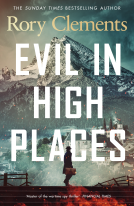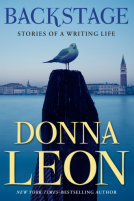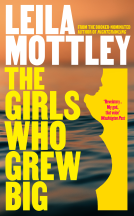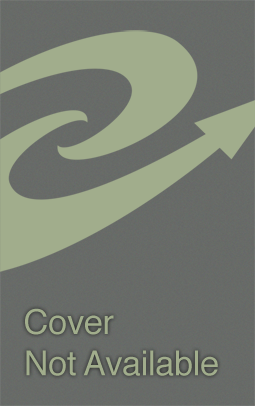
The Line Becomes A River
by Francisco Cantú
This title was previously available on NetGalley and is now archived.
Send NetGalley books directly to your Kindle or Kindle app
1
To read on a Kindle or Kindle app, please add kindle@netgalley.com as an approved email address to receive files in your Amazon account. Click here for step-by-step instructions.
2
Also find your Kindle email address within your Amazon account, and enter it here.
Pub Date Mar 01 2018 | Archive Date Mar 31 2018
Random House UK, Vintage Publishing | Bodley Head
Description
THE NEW YORK TIMES BESTSELLER
'Stunningly good. Beautiful, smart, raw, sad, poetic and humane… It’s the best thing I’ve read for ages', James Rebanks, author of THE SHEPHERD'S LIFE
How does a line in the sand become a barrier that people will risk everything to cross?
Francisco Cantú was a US Border Patrol agent from 2008 to 2012. He worked the desert along the Mexican border, at the remote crossroads of drug routes and smuggling corridors, tracking humans through blistering days and frigid nights across a vast terrain.
He detains the exhausted and the parched. He hauls in the dead. He tries not to think where the stories go from there.
He is descended from Mexican immigrants, so the border is in his blood. But the line he is sworn to defend is dissolving. Haunted by nightmares, he abandons the Patrol for civilian life. And when an immigrant friend is caught on the wrong side of the border, Cantú faces a final confrontation with a world he believed he had escaped.
The Line Becomes a River is timely and electrifying. It brings to life this landscape of sprawling borderlands and the countless people who risk their lives to cross it. Yet it takes us beyond one person’s experience to reveal truths about life on either side of an arbitrary line, wherever it is.
Advance Praise
'This book tells the hard poetry of the desert heart. If you think you
know about immigration and the border, you will see there is much to
learn. And you will be moved by its unexpected music'
Luís Alberto Urrea, author of THE DEVIL'S HIGHWAY
'Cantú’s story, and intelligent and humane perspective, should mortify
anyone who ever thought building a wall might improve our lot. He
advocates for clarity and compassion in place of xenophobia and
uninformed rhetoric. His words are emotionally true and his literary
sensibility uplifting'
Barry Lopez, author of ARCTIC DREAMS and OF WOLVES AND MEN
'A beautiful, fiercely honest, and nevertheless deeply empathetic look at
those who police the border and the migrants who risk – and lose --
their lives crossing it. In a time of often ill-informed or downright
deceitful political rhetoric, this book is an invaluable corrective'
Phil Klay, author of REDEPLOYMENT
Available Editions
| EDITION | Other Format |
| ISBN | 9781847924872 |
| PRICE | £14.99 (GBP) |
| PAGES | 240 |
Featured Reviews
 Meike S, Media/Journalist
Meike S, Media/Journalist
"When I was in school, I spent all this time studying international relations, immigration, border security. I was always reading about policy and economics, looking at all these complex academic ways of addressing this big unsolvable problem. When I made the decision to apply for this job, I had the idea that I'd see things in the patrol that would somehow unlock the border for me, you know? I thought I'd come up with all sorts of answers. And then working here, you see so much, you have all these experiences. But I don't know how to put it into context, I don't know where I fit in it all. I've got more questions than ever before."
This quote from the book is part of a conversation Francisco Cantú, the author of this memoir, had with one of his fellow Border Patrol agents. After graduating with a B.A. in International Relations, Cantú decided to experience the realities of law enforcement at the Mexico-United States border for himself - much to the dismay of his concerned mother, a former Arizona park ranger: "You grew up near the border, living with me in the deserts and national parks. The border is in our blood for Christ's sake - your great-grandparents brought my father across the border from Mexico when he was just a little boy."
As a grandson of immigrants, Cantú was now directly confronted with the plight of migrants seeking a better life, many of them dying during their dangerous passage through the desert, the cartels, trafficking drugs and people, the local inhabitants and farmers who are fearing both cartel violence and raids by hungry and desperate migrants, and the psychological toll the dangerous work of patrolling the "unnatural divide" takes on his colleagues and him. Faced with a multitude of dangerous and bloody stories, the "big unsolvable problem" of the border starts to weigh Cantú down. Instead of making peace with the wolf, as his patron saint Francis of Assisi (after whom his mother named him) did, a wolf starts to haunt Cantú's dreams: "I dreamed of a cave littered with body parts, a landscape devoid of color and light. I saw a wolf circling in the darkness and felt its paws heavy on my chest, its breath hot on my face. I awoke (...). Then, for several minutes, I stared into the mirror trying to recognize myself."
What makes this text so strong is that Cantú manages to give a nuanced account, presenting the factual and the emotional without getting carried away on neither side. He puts all of his knowledge to work in order to make sense of the border as a concept and as an actual phenomenon: His family background, the historical, sociological and psychological research on the impact of the border and the violence that occurs there, as well as his experiences as a border patrol agent and as a friend of a deported Mexican. On the level of language, factual accounts, stories, studies, and highly poetic bits are intertwined, and the change of style and tone add to the depiction of the border as a contradictory and multi-layered reality that can be encircled, but never fully grasped (Cantú left the Border Patrol and got an MFA in Creative Writing).
The title "The Line Becomes River" hints at the fact that the Rio Grande forms part of the Mexico-United States border, the fluidity of the water somehow mocking the character of the border as a fixed barrier: "As I swam toward a bend in the canyon, the river became increasingly shallow. In a patch of sunlight, two longnose gars, relics of the Paleozoic era, hovered in the silted water. I stood to walk along the adjacent shorelines, crossing the river time and again as each bank came to an end, until finally, for one brief moment, I forgot in which country I stood. All around me the landscape trembled and breathed as one."
Francisco Cantú already won the 2017 Whiting Award for Nonfiction for this book, and it is pretty easy to see why: Cantú does not only discuss a very current topic and shatters disgusting racist stereotypes, he also does not fall into the trap to turn his memoir into a pamphlet against the madman in the White House (who is not mentioned with one syllable throughout the whole text). It is the factuality and nuance of the book that make this account credible and moving.
